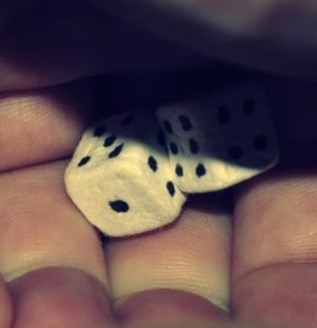Interesting, I seem to have the opposite condition - something breaks, then they ask me to look at it and by the time I get there it’s working perfectly again.
ProfessorOwl_PhD [any]
- 4 Posts
- 142 Comments

 51·9 days ago
51·9 days agoArson is a right.
It should be a right.
If a cat weighed 300 pounds, had the intelligence of a toddler and the morals of a seagull, it would be a dog. It’s just a dog. Seals are exactly sea puppers, people just don’t know what a pupper really is.

 11·15 days ago
11·15 days agowhy would i fucking care about the rest of what you have to say, liar? You’re not here arguing in good faith, why would I bother?

 11·15 days ago
11·15 days ago- assets plural
a. the property of a deceased person subject by law to the payment of his or her debts and legacies
b. the entire property of a person, association, corporation, or estate applicable or subject to the payment of debts
a. an item of value owned
b. assets plural the items on a balance sheet showing the book value of property owned
Hey now, something strange is going on here - see, when I visit that page, there aren’t just 3 items. Now, you wouldn’t be selectively ignoring parts of your own source to paint a certain narrative, would you? Because the 4th item I see is
4 : something useful in an effort to foil or defeat an enemy: such as
a : a piece of military equipmentb : spy
I’m sure you simply… overlooked it in your excitement. Now you’re aware though, I’m sure you’ll be happy to correct your comments.

 11·15 days ago
11·15 days agoTo be clear, being a troll or a paid actor doesn’t make you someone’s property.
Ok, I give up, I have no idea if you’re doing a bit. Like I felt kinda confident you were serious, but this leaves me floundering. Purposely obtuse because you’ve talked yourself into such a stupid corner, or just that incredibly obtuse that you unironically think asset means property? Absolutely no way to tell which one it is.

 41·17 days ago
41·17 days agoRutte spoke in Brussels after a high-level South Korean delegation, including top intelligence and military officials as well as senior diplomats, briefed the alliance’s 32 national ambassadors at Nato headquarters.
The South Koreans showed no evidence of North Korean troops in Kursk, according to European officials who were present for the 90-minute exchange
Smells like Saddam’s WMD’s all of a sudden.

 101·18 days ago
101·18 days agoPeople love to talk about self reliance without thinking about it too hard - you’re not on your own, you’re entirely dependent on cooperating with others for your way of life. You did not builld you house, your car, your clothes, your bed. You did not grow your food, you did not mine the oil in your plastic products, nor refine it into them. You do not generate the electricity that powers your home and devices, you did not build the generator or infrastructure that brings power to you. Even the smallest things - the cutlery you use to eat, the soap you wash with, the bed you sleep on - were made by others for your use.
Self reliance is a capitalist myth that’s inherently disproven by modern civilisation.
Me, planning consequences:

He could have stabbed it but chose not to I guess. Maybe he thought that would be more cruel?
Yup, that’s some bonafide player logic right there.

 2·23 days ago
2·23 days agoMy Paladin got eaten by a purple worm once. Then spat back out. Then he jumped back inside because disadvantage and stomach acid was easier to deal with than its basic attacks.

 113·23 days ago
113·23 days agoYou mean people have repeatedly pointed out you don’t hold the values of the person you named yourself after? Should that not prompt at least a little introspection?

 247·24 days ago
247·24 days agoRemoved by mod

 3015·24 days ago
3015·24 days agoRemoved by mod

 10·27 days ago
10·27 days agoIt was the United States which pioneered the idea of the modern mail system
The UK had a general post office that deliverd to individuals over 100 years before the USA was founded. The US postal system is based on the UK one that delivered their mail before the US’s founding. Why on earth would you think the US pioneered it?
Crocodile, shark, pill bug… They’re all creatures that are now famed as “living fossils”. Even looks like a coeleocanth fin in one of the panels.
No, the majority are about specific history or culture, usually local. Natural History Museum covers nature, Science Museum covers science, Leeds museum covers the history of the city of Leeds, Crab museum covers worker’s movements. The British museum is really the Stuff The British Stole museum.

 3·1 month ago
3·1 month agolike a reddit thread talking about being able to do 520 damage in one attack, some chatter about a “resentment witch” being able to make power word stun or color spray effectively permanent, and a youtube video by the rules lawyer about “OP builds”, so it seems like there’s at least some system exploitation going on.
Surprisingly, as OP as they seem, they’re entirely in line with the intent of PF2e. 520 damage might seem like a lot, but it takes a specific enemy type, some prebuffing, 4 actions (plus any necessary movement) to prepare, 4 spells from 3 other characters, 2 more actions to execute the attack, and some incredibly lucky rolling - an equal level wizard can just use 2 actions to cast the 10th rank spell Cataclysm, and with similar dice luck deal 420 damage. 480 if the target is swimming. That’s just level 20 PF2e.
Similarly, the resentment witch is just meant to make those conditions permanent - enemies of a higher level than the party have their success level against those saves increased, so while they can be a huge boon, they’re unlikely to do much against enemies they’d really turn the fight against - being able to extend what effects they can land makes incapacitation spells worth potentially wasting on bosses, with the high chance of the spell doing nothing and the ability not even coming into play being the trade off for the power of the ability. Even if the spell does land, it’ll be a lesser version of the effect that is extended.
I don’t watch the rules lawyer, but from his interaction with the PF2e subreddit I’m pretty confident it’s a clickbait title - they’ll be powerful builds, but entirely within the intentions of the system, and ultimately as useful in game as most other builds.
I’d disagree on the second part, because of my other example, PF2e - the original had most of 3.x’s problems, but the code-like specificity of 2e is really showing it’s possible to stop stuff slipping through the cracks. There is a level of interplay between crunch and the possibility of exploitability, but I don’t think it’s as strict as bigger systems and more rules inherently lead to more exploits.


Using an item you haven’t identified is always a recipe for disaster. I have not once heard of a group using an unidentified item and finding out it was anything other than the worst possible thing to use in the situation.